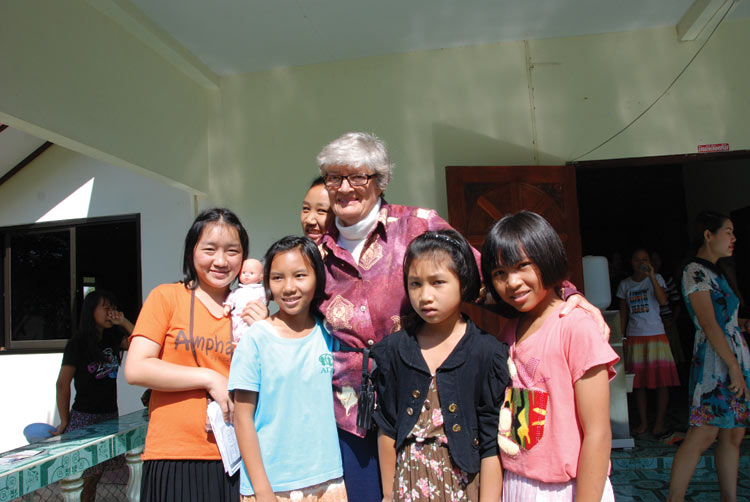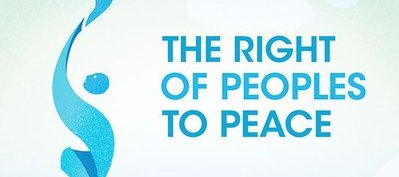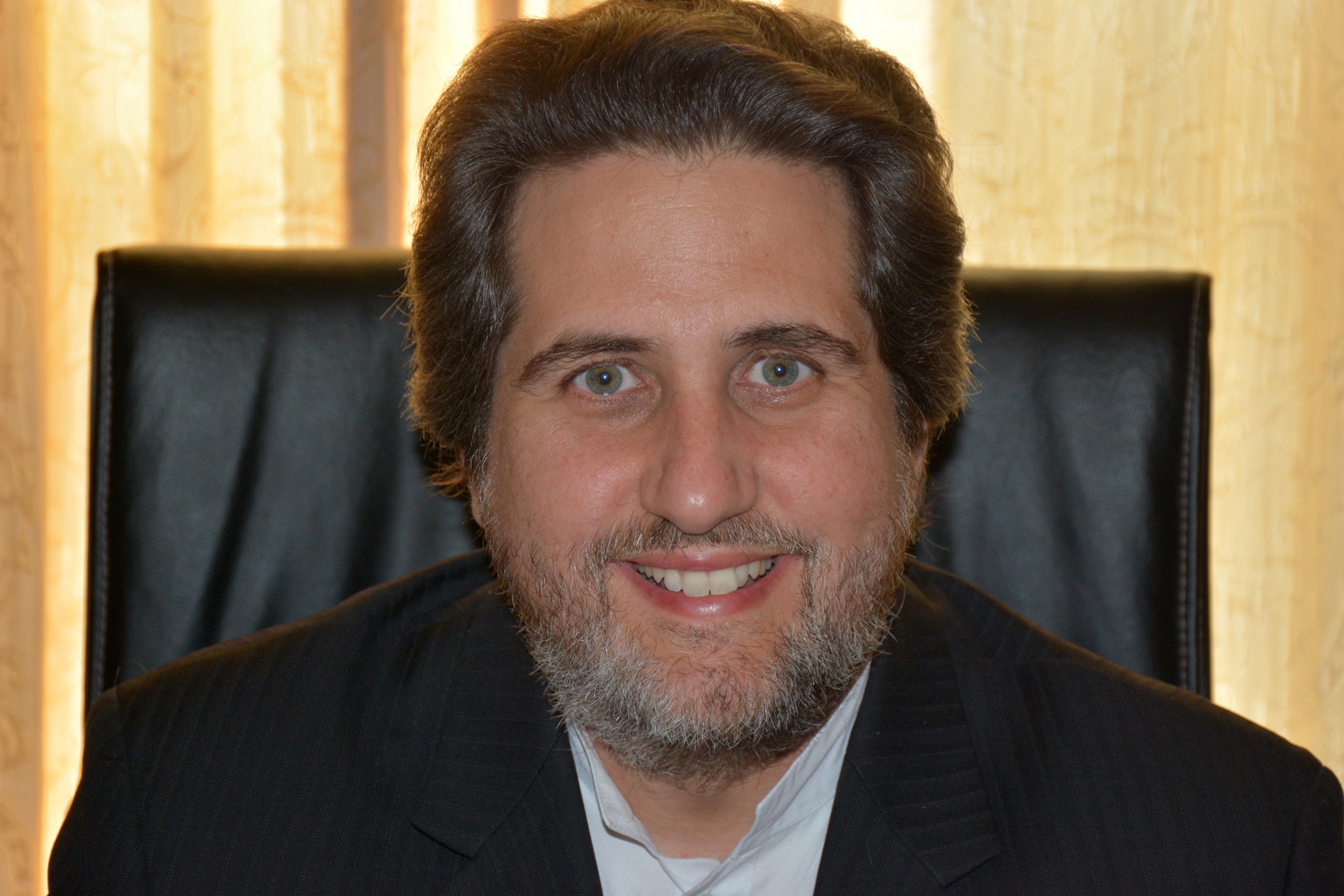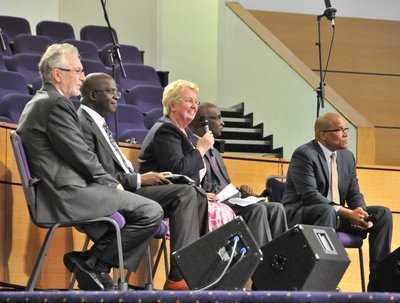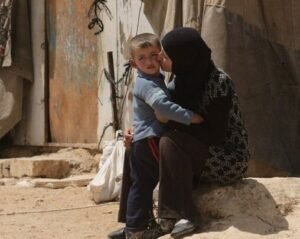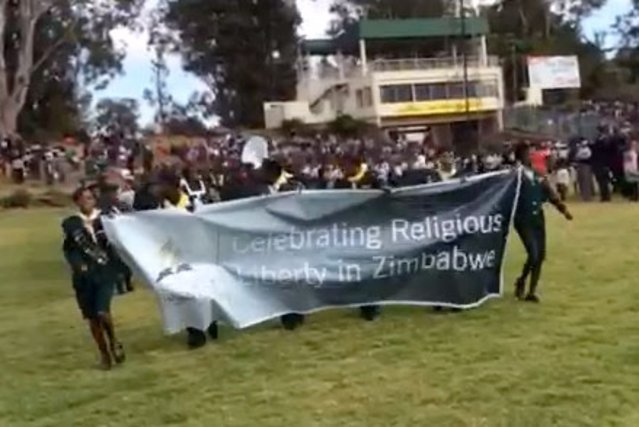By Barry Casey
"Every part of a system is so related to its fellow parts that a change in one part will cause a change in all of them and in the total system. That is, a system behaves not as a simple composite of independent elements, but coherently and as an inseparable whole."
These dispassionate words may not come to mind when we see the shelling in Gaza or watch in horror the videos of what the Islamic State is doing to Christians in Mosul. But they give us a way to deal with these extremes and to understand them.
The quote is from Pragmatics of Human Communication (1967) by Paul Watzlawick, Janet Beavin, and Don Jackson, who were three of the principal researchers at the Mental Research Institute of Palo Alto in the late 60s and early 70s. The pioneering work that they did, trying to understand the connections between communication and human behavior, was an interdisciplinary venture that spanned psychopathology, mathematics, literature, systems theory, and communication studies. They wanted to know how communication as an interactional process affected our behavior.
Starting from the axiom that "all behavior is communication and one cannot not communicate," they arrived at the conclusion that everything we do when we communicate with each other affects all our communication processes and cannot be separated out. Put simply, to say that the actions of person A causes the behavior of person B ignores the relation of B to A and the effect B may have on A's subsequent reactions.
Like it or not, they seem to be saying, we're all in this together. Every time Hamas fires a rocket at an Israeli settlement it is communicating; with the inevitable reciprocation on Gazan villages there is a deadly communication process in place that becomes a feedback loop. Every action results in a reaction which provokes a new action ad infinitum.
Furthermore, if we isolate an action in order to find its cause—and thus to blame—we miss the wider context in which that action takes place. We discover that actions happen in a context and that that context occurs within a relationship between people and groups. Focusing on the particular actions and not on the relationship between the parts of this system results in us missing the meaning of the actions that take place.
An example given by the authors is the difference between my foot kicking a stone and me kicking a dog. When my foot hits the stone it will move and eventually come to rest again. But if I kick the dog it may jump up and bite me. The kick has become not simply energy but information; my behavior has communicated something which the dog, rightfully so, interprets as an attack and responds accordingly. A kick is not just a kick within a relationship: it sends a message that grew out of the relationship prior to the kick and will affect responses to the kick.
As I read news reports of the actions of ISIS/Islamic State, watched videos, and read the comments of readers and viewers I could feel a tension building in me. I could imagine the desperation of the thousands trapped on Sinjar Mountain, the children dying from thirst and exhaustion. And I wanted to obliterate the militants surrounding them on the plains below. It wasn't enough that American pilots drop supplies to the victims: I wanted to see the bodies of those fighters after the bombs tore through them. I wanted video of them calling out for help as they bled to death.
And then a curious but inevitable thing happened. As the tension in me built the world divided up neatly into right and wrong, black and white, us and them. Crush them all! Barbarians! Stomp their lives out! So they're killing Christians and ethnic minorities? Damn Muslims!
In a flash I had gone from righteous indignation to murderous wrath, from a generalized tolerance for other religions to a Crusade mentality against all Muslims. From the particular to the general. Kill 'em all and let God sort it out later.
It got even worse when I stumbled across a website that is apparently run by Christians who believe Islam is Satanic. Their comments were raw hatred, all the visceral fear and fury of those who are absolutely certain that their enemy is the Devil and they are on the side of the angels. And these were self-confessed Christians. In the words of George Orwell's Animal Farm, I looked from pigs to men and from men to pigs, and already I could not tell the difference. And that's when I remembered Paul Watzlawick and his pragmatics of human communication.
I realized I was confronted with a moral dilemma that I couldn't face—the slaughter of the innocents. I was helpless to do anything except inwardly rail against the perpetrators. The situation was too complex for me to handle, so I simplified it. I had divided my perceptual world in two: Christians and Muslims. But of course it's much more nuanced than that. It's Sunni against Shiite, Kurdish against Iraqis, caliphate against sovereign states, America against rebel forces, economic interests against religious and political ideologies, men against women and children, hate-filled Christian extremists against fanatical Islamic jihadists.
But even that was still too simple, a binary response to something multi-faceted and entangled. I recalled something I'd read years ago by William Irwin Thompson, a cultural historian and philosopher: "We become the thing we hate," he said. And I remembered, too, how easily we are manipulated by media images, and how adept political and military groups have become at the propaganda arts. Our instant and ubiquitous media draws us all across the lines in the sand. By watching we become changed—and not for the better. All those Christian groups glued to their YouTube videos, who thought Hamas and Islamic State would be in our streets next week unless we nuked them, would be more likely to turn on their neighborhood mosque or to beat up someone wearing a hijab on the Metro.
I am not at all settled on this. I could visualize myself, with the best intentions, running out into no mans land with my hands out, imploring both sides to cease fire, and getting shot before I could make my eloquent statement. Where am I on the non-violence idea? Generally for it, from the safety of my Maryland suburb. Children in Mosul were being beheaded, said a Chaldean-American activist on CNN. Is that true? I shudder to think so, and yet my children have their heads on their shoulders in the sweet summer evening air. Am I to feel guilt because we are safe, our home has not been bombed, my wife and daughter have not been raped? Guilt of that sort doesn't seem productive and yet my heart can feel the terror and the blind rage and the sheer relief of having survived an attack, all in my imagination.
Hobbes thought the world was a place of constant terror, a life that was, as he famously put it, 'nasty, brutish, and short.' Kant was steadfast against lying and murder, for any reason, and Aristotle counseled moderation in all things. Courage and prudence were cardinal virtues that didn't need to be moderated; how could you be too courageous or too prudent? Dietrich Bonhoeffer, that Christian exemplar of integrity and ethics, said, 'When a horse is running wild in the street, you stop the horse.' There is a time for words and a time for action, he seemed to be saying. Pacifist that I am would I hesitate to shoot someone about to murder women and children? The Tao cautions that violence should be the absolute last resort, and be discharged with sorrow and not with triumph.
What is becoming clearer to me is that we are, all of us in this tortured, dark, yet beautiful world, bound to one another. The death of one—any one—impoverishes all of us. This, I am convinced, is not New Age ignorance disguised as bliss. It is, rather, part of the virtues of humility and courage that Jesus and others exemplified. We cannot not communicate. All that we are, says the Dhammapada, is a result of what we have thought. Our revolution begins from the inside—and affects the world.
Barry L. Casey
240-273-2345 (cell)
darmokjilad@gmail.com
Read my blog @ http://danteswoods.com
